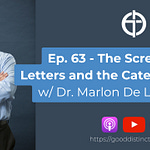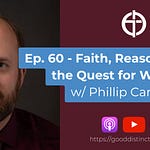NOTE: THIS EPISODE WAS PUBLISHED BEFORE OUR REBOOT. willwrightcatholic.com is now gooddistinctions.com
Does the First Amendment of the Constitution Cover Freedom of Speech?
The United States of America is the freest nation on Earth, for the time being. The Supreme Law of the land continues to be the Constitution. The founding document of our great nation on its own is the crowning achievement of the Founding Fathers, but before its ratification, ten articles were included as amendments.
These ten articles became known as the Bill of Rights. The first of those rights, called the First Amendment, is:
"Congress shall make no law respecting an establishment of religion, or prohibiting the free exercise thereof; or abridging the freedom of speech, or of the press; or the right of the people peaceably to assemble, and to petition the Government for a redress of grievances."
Today, we are going to provide Free Speech 101: The Essential Guide. There are many things which ought to be said in the realm of freedom of speech, but these things are the roots, the essence of the topic.
What is Freedom of Speech?
The Constitution's First Amendment protects the nation from Congress attempted to make laws abridging the freedom of speech, or of the press. This is the cornerstone of a healthy democracy.
"Generally speaking, it means that the government may not jail, fine, or impose civil liability on people or organizations based on what they say or write, except in exceptional circumstances."
The Supreme Court has interpreted the Constitution as protecting speakers from any and all government agencies and officials. Further, "speech" and "press" refers to talking, writing, printing, broadcasting, the Internet, and other forms of expressing oneself.
Much to the chagrin of some, "freedom of speech also applies to symbolic expression, such as displaying flags, burning flags, wearing armbands, burning crosses, and the like (Stone, Volokh)."
What Circumstances Are Not Covered as Free Speech Under the First Amendment?
The American Civil Liberties Union (ACLU) has a reputation as a liberal organization, to put it mildly. However, in an article regarding free speech, the ACLU wrote:
"Over the years, the ACLU has represented or defended individuals engaged in some truly offensive speech. We have defended the speech rights of communists, Nazis, Ku Klux Klan members, accused terrorists, pornographers, anti-LGBT activists, and flag burners. That’s because the defense of freedom of speech is most necessary when the message is one most people find repulsive. Constitutional rights must apply to even the most unpopular groups if they’re going to be preserved for everyone."
Quite right! So, when is freedom of speech NOT covered by the First Amendment of the Constitution?
First, certain types of speech are considered "low" value to the Supreme Court and thus provide circumstances under which the First Amendment barely applies or does not apply. These are outlined, with references to specific cases by Stone and Volohk:
Defamation
True threats
"Fighting words"
Hard-core obscenity (such as highly sexually explicit pornography)
Child pornography
Commercial Advertising which is misleading
Second, if the speaker is in a special relationship to the government, they are less protected. Government employees, such as public school employees can be restricted, even in the content of their speech.
Third, the government can restrict speech under certain circumstances which are irrespective of content. For example, restrictions on noise, blocking traffic, and large distracting signs are constitutional, if they are reasonable. However, a law prohibiting demonstrations in public parks or handing out leaflets on public streets would be unconstitutional.
Who was John Stuart Mill and What Did He Believe About Speech?
Where did the American notion of freedom of speech which we possess come from? The lion's share of that work belongs to the British philosopher John Stuart Mill. In his 1859 book, On Liberty, Mill provided a bold argument for freedom of speech.
Mill believed in the freedom of speech to discuss any topic at all, without molestation. The fullest expression of liberty in his mind was following topics of conversation to their logical limits. Social niceties be damned.
He did, however, hold to what is called the "Harm Principle." Writing on this subject, Mill says, "... the only purpose for which power can be rightfully exercised over any member of a civilized community, against his will, is to prevent harm to others (Mill, J.S., 1978. On Liberty, Indianapolis: Hackett Publishing)." Application of this principle is the subject of not a few debates. However, it is important to take note of this principle because it is the default liberal position on almost everything. "Well... I'm not hurting anyone!!!"
To find the most liberal position's boundaries, we need only determine if someone would be harmed by someone's else's free expression. Important to distinguish, however, is that Mill would not have argued that freedom of speech be limited simply because a person was harmed. Only when speech causes direct and clear harm should it be limited.
What are the Critiques of John Stuart Mill? Do They Bear Any Merit?
The extreme liberal position of John Stuart Mill was an important contribution to the debate on freedom of speech. Many topics would have remained undiscussed due to taboos and socially acceptable limits. One important critique comes from an article in the Boston Review by Jacob Stanley in 2018. Stanley rightly points out that, "Disagreement requires a shared set of presuppositions about the world. Even dueling requires agreement about the rules."
In his estimation, John Stuart Mill believed that "true belief becomes knowledge only by emerging victorious from the din of argument and discussion, which must occur either with actual opponents or through internal dialogue." Stanley, therefore, argues that false claims and conspiracy theories must be defended, if we are to have a chance of achieving knowledge. Stanley, however, recognizes the limits of the idea of a "marketplace of ideas" saying that human nature does not really allow for the truth to always prevail.
This pragmatic view seems to provide a tempering of John Stuart Mill's unadulterated view of freedom of speech. We must understand our own limitations, as humanity, if we are to understand what freedom of speech offers us. We also cannot forget what freedom of speech requires of us!
Taking Offense
Presently, hate speech and taking offense are unfortunately conflated. Hate speech is determined based on the intention of the speaker. Whereas, taking offense is based on the decision of the hearer. They are not the same.
In fact, sometimes a person might say something which another person takes as offensive. Let us imagine, though, that the thing which the speaker said is absolutely true and the problem is with the hearer being out of step with the truth. At this point, we can start analyzing whether what was said needed to be said. Did it need to be said in the way that it did? Did it need to be said in the circumstances that it did? Did it need to be said by that speaker to that hearer at that time?
We need to dispel this myth that we have a right to not be offended. Sometimes we need to be offended. We are not perfect, not one of us. And so, if a truth is given to us, we need to be receptive, even if it hurts. That is how we grow.
So, it would seem that freedom of speech extends to being offensive? But what about offensive statements which are not based in reality and actually point to a deeper more problematic issue under the surface? True hate speech causes offense, more often than not. But it is not the offense which is the primary issue. Hate speech can do injustice to privacy, equity, and security. Speech which shows a blatant disregard for the equity of people based on skin color, religion, sexual orientation, or gender (biological sex - male or female) which intends harm, cannot be under freedom of speech. No one is free to threaten harm.
The Limits of Freedom of Speech and Our God-Given Rights
I have no desire to opine on every possible aspect of freedom of speech in which limitations might be appropriate. Instead, I want to call us back to seeing freedom of speech as a right which necessarily is accompanied by responsibility. Here I am going to stray into philosophy rather than legality. To be clear, I am not going to be discussing what is constitutional or not, but rather stating what I believe to be right or not.
Rooted in respect for human dignity, all are called to seek the common good. An integral part of securing the common good is protecting the basic and inalienable rights of all people. This begins with the right to life. Mothers and fathers have a responsibility to protect their children (from the first moment of his or her existence) to the best of their ability.
Generally, the best decision is made at the local level. And so, each family must make decisions for themselves and their neighbors. These micro-communities need to serve their macro-communities. Those communities need to serve the common good of the state, then the nation, then the world. Our rights do not come primarily from our government. They begin at home. They begin with life.
Responsibility Accompanies Rights, Always
In justice, as we seek the common good, we exercise these rights, but we must never lose sight of the accompanying responsibilities. Put another way: we are not given rights by the Creator to be kept for our sole use. When it comes to speech, we do not have freedom of speech so much as freedom FOR speech. Our rights are geared towards our duties and responsibilities. We have to use our gifts and powers well. As Pope John XXIII wrote well in his 1963 letter Pacem in Terris:
"... in human society one man's natural right gives rise to a corresponding duty in other men; the duty, that is, of recognizing and respecting that right. Every basic human right draws its authoritative force from the natural law, which confers it and attaches to it its respective duty. Hence, to claim one's rights and ignore one's duties, or only half fulfill them, is like building a house with one hand and tearing it down with the other (30)."
When we speak, we do not have a license to say whatever we would like. Certainly, we have the protected right to do so in the United States, under certain limitations. But I am arguing that we should use our freedom of speech wisely. By using it well, our words will have greater impact. Our well-chosen words will add social value and lift our neighbors up. Let us build up this common house and humanity, rather than tear it down.
Sources:
https://constitutioncenter.org/interactive-constitution/interpretation/amendment-i/interps/266
What is free speech? What is not considered free speech?
https://plato.stanford.edu/entries/freedom-speech/
Freedom of Speech entry at Stanford
https://www.mtsu.edu/first-amendment/article/1258/john-stuart-mill
1st Amendment Encyclopedia
Liberal critique of John Stuart Mill
https://www.aclu.org/issues/free-speech
ACLU on Freedom of Speech
https://constitution.congress.gov/constitution/amendment-1/
Text of the 1st Amendment
Free speech and the internet














Share this post